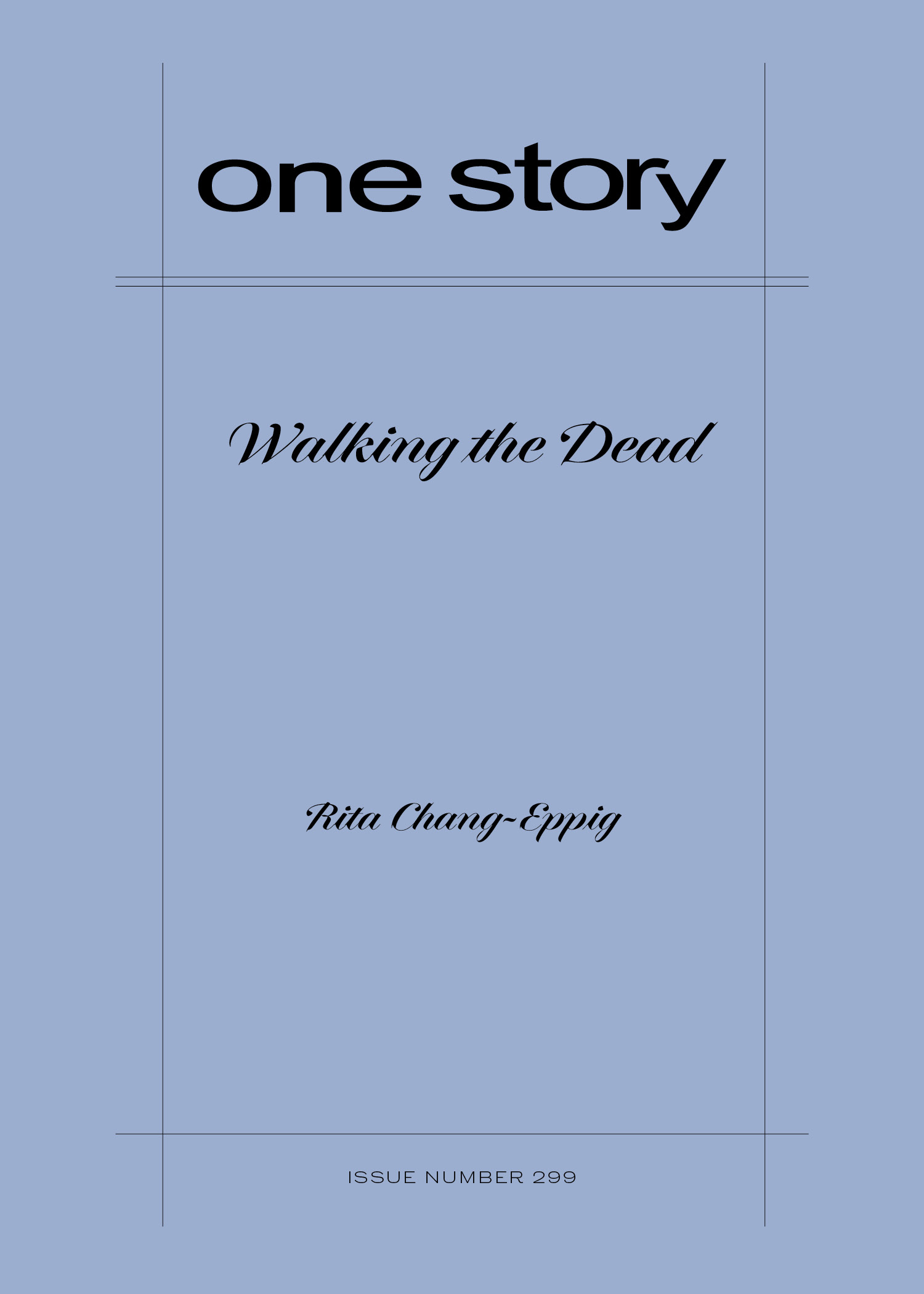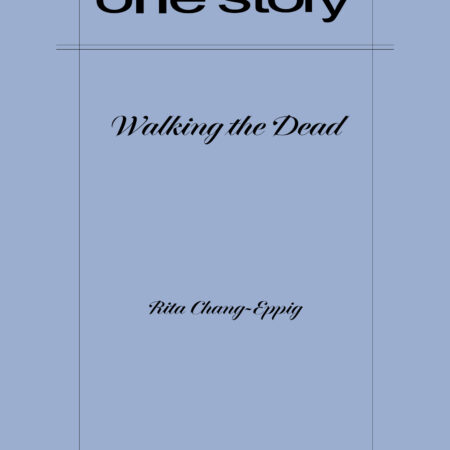
Walking the Dead
$2.50
40 in stock
Excerpt
The dead came in the night, plodding in a single file behind the priest with the loud gong and the lone lantern. They wore trailing black robes and white veils that thoroughly obscured their features. From afar they looked like four giant moths fluttering one by one to the flame of their doom.
“I want to look!” Didi said because he was too short, even standing on tiptoes, to see out the window without Hui’s help. He held out his arms and made a grabby gesture with his hands. But Hui didn’t want to pick him up, not even if she could. She was in enough trouble as it was, sneaking out of bed in the middle of the night to catch a glimpse of the walking corpses. If Liu Nainai awoke to find her in the sitting room like this, despite her dire warnings about the curse that befell anyone foolish enough to gaze directly at the dead, well, Hui would get at least ten strikes of the cane.
In her mind, curses were like the fever-inducing Evil Wind the town doctor was always going on about. Hui hardly ever got sick, which she reasoned meant she wouldn’t get cursed either. But Didi, Didi grew ill the way that monsoon rain fell: regularly, relentlessly, and yet, somehow, also unpredictably, as if to ensure that everyone was paying attention. His last illness had been ravenous, consuming his heartblood until he became pale and light as a feather. She’d squeezed his hand as he lay slipping in and out of consciousness, his wan little hand not even strong enough to grasp hers back.
Rita Chang-Eppig
Rita Chang-Eppig’s debut novel about the legendary pirate queen of China, Deep as the Sky, Red as the Sea, is forthcoming in 2023 from Bloomsbury. Her stories have appeared in The Best American Short Stories 2021, McSweeney’s Quarterly Concern, Conjunctions, Clarkesworld, Virginia Quarterly Review, and elsewhere. She has received fellowships from the Rona Jaffe Foundation, the Vermont Studio Center, the Bread Loaf Writers’ Conference, and the Martha Heasley Cox Center for Steinbeck Studies at San Jose State University.
Karen Friedman on “Walking the Dead”
Part historical fiction, part horror story, part coming of age, our latest issue, “Walking the Dead” by Rita Chang-Eppig, defies easy categorization.
The story begins shortly after Mao has taken over in China. Through the eyes of Hui, a young girl whose mother died saving her from soldiers (which ones, she doesn’t know), we see the ravages of war everywhere: maimed peasants and soldiers, towns and fields destroyed, money that no longer has value, temples ransacked and boarded up.
Convinced that her mother had parting words for her, Hui travels in darkness, trailing behind corpses being “walked home” by priests—an ancient tradition, which Hui fears will soon be ended by the Communists. Joined by her younger brother, Didi, on this unlikely and dangerous journey, Hui struggles to navigate all she has lost while holding on to what has remained.
Ultimately, “Walking the Dead” is a story about survival. In Rita Chang-Eppig’s steady hand, the impossible feels true and the triumph of hope anything but certain. Frightening, heartbreaking, and full of mercies both small and large, we hope you love this story as much as we do.
Q&A by Karen Friedman
- KF: What was the seed of this story? The point of inspiration?
- RCE: The idea came when I learned about the historical practice of corpse-walking from some articles online. The facts alone were fascinating. For example, corpse walkers stuffed the bodies of the corpses with mercury to deter decay—a practice that, I imagine, led to a lot of mercury poisoning. But in one particular article, the writer talked about how her grandfather and his brother used to stay up trying to catch a glimpse of the corpses. That image of two children waiting by a window for these monstrous creatures really, well, haunted me, so I took that image as the starting point for the rest of the story. I asked myself: Why are these children so obsessed with the idea of the walking dead that they would risk punishment and "curses" to try to catch a glimpse of them? Who have they lost? For whom are they really waiting?
- KF: What challenged you the most while writing?
- RCE: Managing the tone. I definitely wanted “Walking the Dead” to be creepy, but at its core, the story is about complicated grief, so I couldn’t have the horror element detracting too much from that. I also wanted to have occasional spots of levity because grief is of course neither linear nor uniform. It also doesn’t fully go away. We simply learn to live around the loss, to play and laugh and hope again in spite of the person’s absence.
- KF: Walking the Dead” takes place just after Mao and the Communists have taken over in China and I know your forthcoming novel is historical fiction as well (though a different period of Chinese history). What draws to you to the past as a setting?
- RCE: I’m not the first to say this, but I think the past never really leaves us. I also think human nature hasn’t changed nearly as much as we think it has in the past few hundred, or maybe even few thousand, years. I’m always amused by those posts that circulate on Twitter every so often about archeologists translating cuneiform tablets that basically read, “The copper I bought was of low quality. Give me a refund.” There’s something so strange and yet totally believable about the idea that in ancient Sumer there were people saying, essentially, “I would like to speak with your manager.” I suppose all of that is my way of saying that the past fascinates me for the same reasons that the present fascinates me. This story takes place in the aftermath of war, which is unfortunately ever-present, so some people somewhere are always experiencing the aftermath of war. Some people somewhere are always trying to grieve their dead while trying to move forward with life. My novel takes place during a time of immense wealth disparity in China—I don’t think I have to explain how that’s connected to the present moment.
- KF: One of my favorite lines is when Hui observes, “Sometimes the belief of a thing was as important as, if not more than, the thing itself.” Do you think this story is a warning about the dangers of belief?
- RCE: Not so much a warning as an exploration of the complexities of belief, I think. Beliefs can get people through some really difficult spots in their lives. They can also stand in the way of radical acceptance of reality. The section in the story about the button is something that happened to me when I was young. I found this glittering green orb on the floor of the Met during a school trip, and something about the grandeur of the museum and my mental state that day convinced me I was holding this magical gem in my hand. I took that thing with me everywhere, slept with it under my pillow, made wishes on it. When I found out it was just a button, I was devastated. As an adult, I now know I was using this gem to distract from what was going on in my life at the time: My family had just immigrated to the States. I didn’t speak a word of English, which meant not only that I had no friends, but also that some of the other kids were making fun of me. The button was an escape from the loneliness I felt, for which I really should’ve been seeking help. But I gotta tell you, for the few weeks I had that button, I felt absolutely magical, and I’m not sure I’d prefer to have not found the button at all.
- KF: Your debut novel Deep as the Sky, Red as the Sea comes out at the end of May. What’s surprised you the most as you’ve gone through the publishing process?
- RCE: The whole thing has been a compulsory exercise in mindfulness, like a mean yoga teacher who used to be a drill sergeant is following me everywhere, barking at me to accept the things I cannot change. I don’t mean to sound unappreciative—I’m aware how fortunate I am in getting to publish a book. In six months, I’ll probably be able to look back on the experience with more perspective. But the fact is that so much of a book’s success has to do with factors completely outside the author’s control, factors that won’t change no matter how many dances you try to do on TikTok (though I’m sure some will disagree with me on this), and accepting that is difficult for a personality like mine.
- KF: What are you working on now?
- RCE: I’m currently in a speed dating situation with a few novels. I’ve interacted with each of them briefly, but I’m not convinced I want to give any my number. One of them is forward-looking and vaguely cyberpunk, but I’m not sure I’m ready to date a techie. Another seems reliable but is too reminiscent of an ex. The third, I’m convinced, is just way too smart for me.
- KF: What’s the best piece of writing advice you’ve ever received?
- RCE: “If you’re bored by what you’re writing, then your readers will be bored reading it.” I feel terrible because I don’t remember which of my amazing professors at NYU said this, but I want to make a plaque of this quote and then hang it at eye level in my study. And then maybe make a bunch more plaques and sell them on Etsy or something. Every time I’ve wanted to give up on a piece, it usually wasn’t a problem with the story “seed” itself, it was because I had written myself into a nap. As soon as I changed things up somehow (the prose, the characters, and/or the plot), suddenly I felt reenergized.
